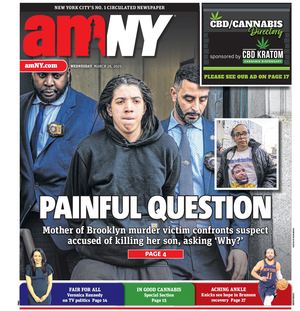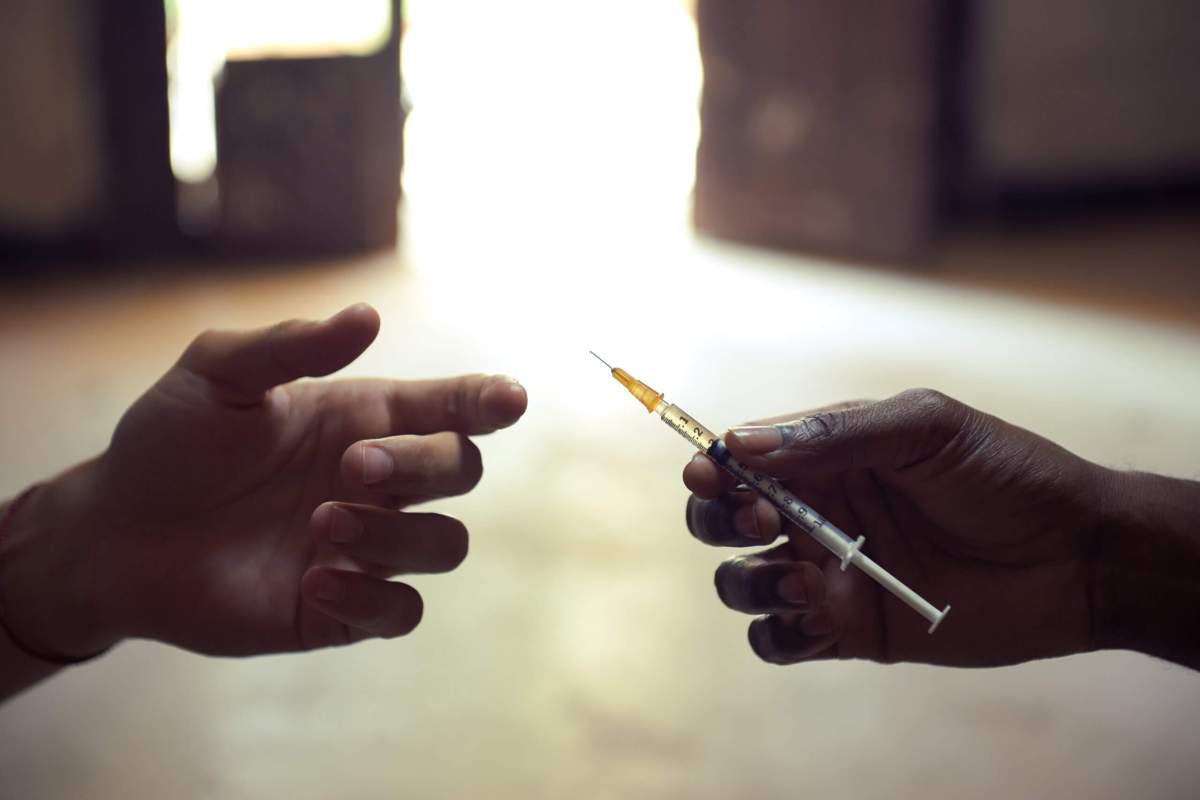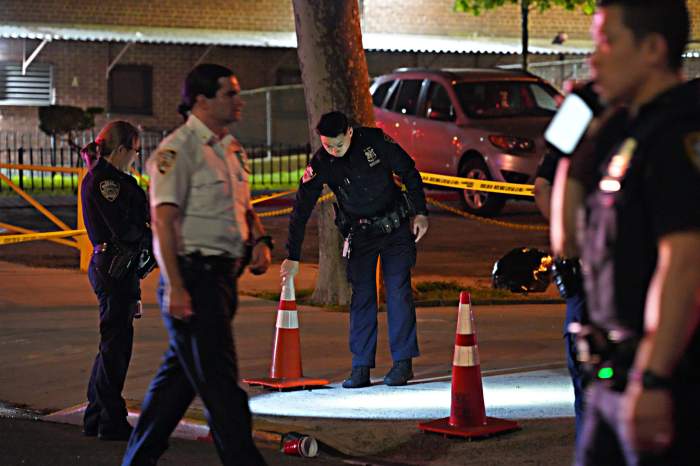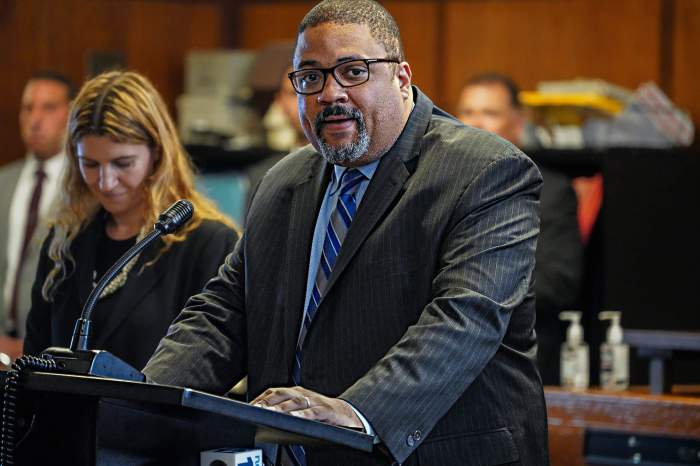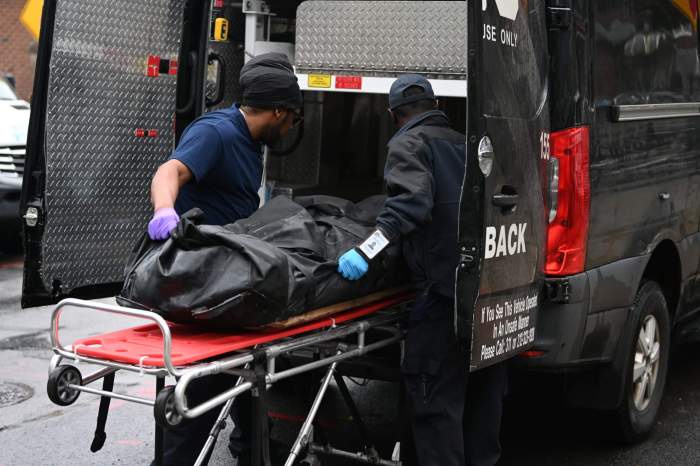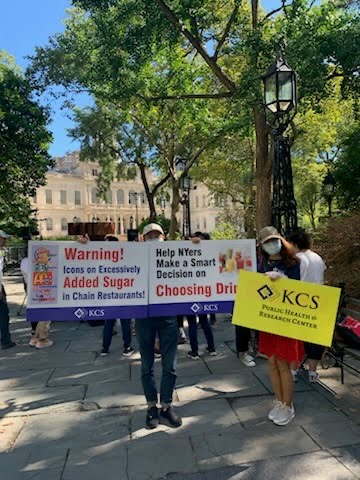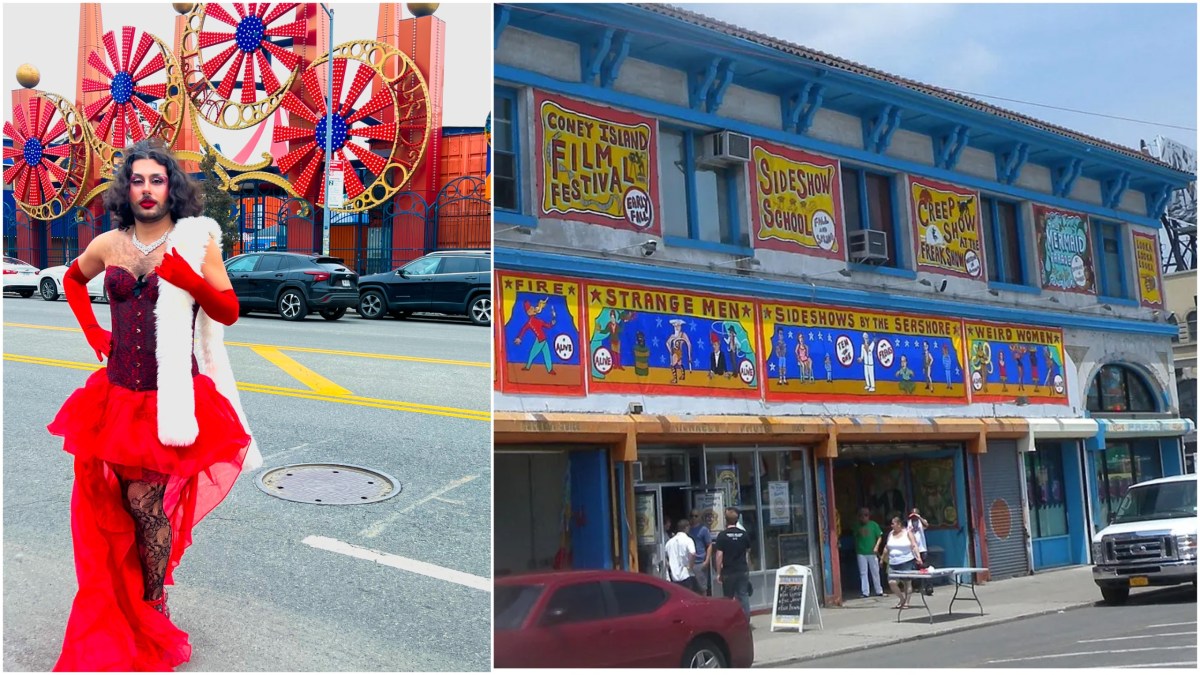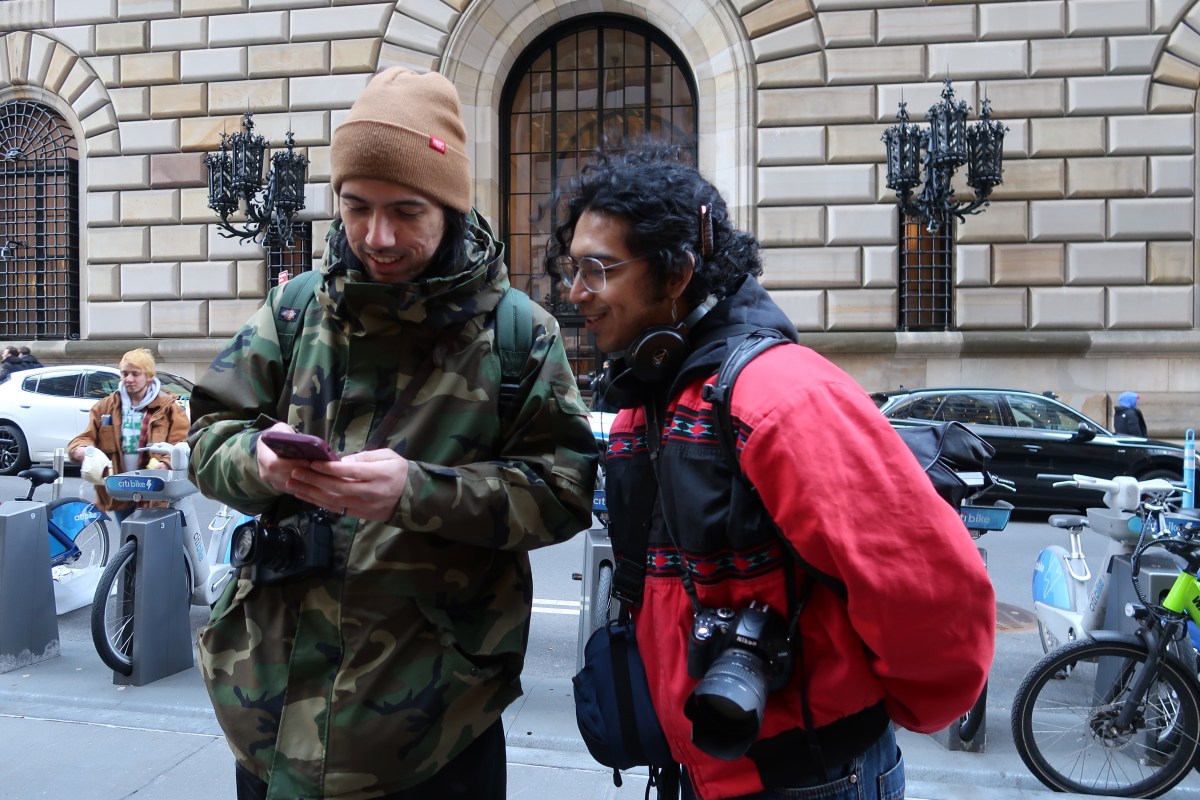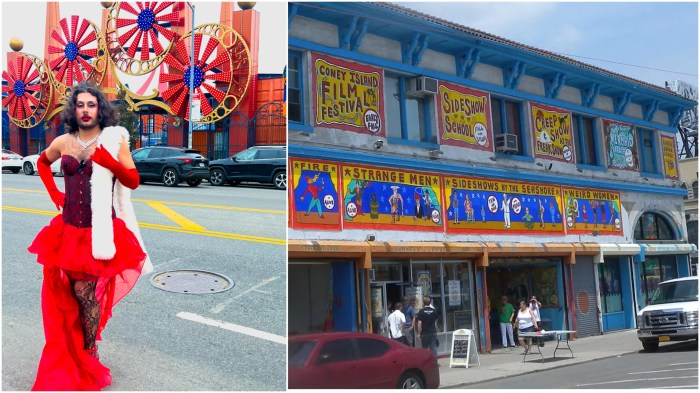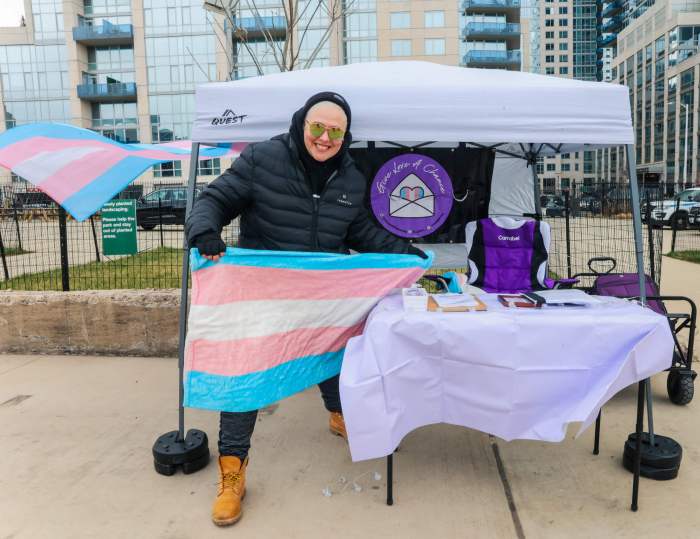Eighteen demonstrators were arrested Thursday outside the U.S. Attorney’s office for the Southern District of New York, where the feds are publicly mulling a crackdown on the city’s two overdose prevention centers (OPCs).
The arrests came on International Overdose Awareness Day, a commemoration of the tens of thousands of people who die of overdoses each year and a call to action to prevent them in the future. The 18 people arrested represent the 18 New Yorkers who die of preventable overdose deaths each day, activists say.
But one of the most prominent efforts in the city to prevent overdoses is facing a cloud of uncertainty: federal prosecutors are weighing a crackdown on the two OPCs in Harlem and Washington Heights run by OnPoint NYC, which have operated in New York since their opening was authorized by former Mayor Bill de Blasio in 2021.
The centers allow people to walk in and safely consume drugs under the supervision of facility staff, who quickly intervene if a user experiences an overdose and provide referrals to drug treatment if a user seeks it out. OnPoint says that its staff has stopped 1,000 overdoses since opening.
Dozens of such facilities exist in other countries — and no one has ever died in one — but the two in Manhattan are the only ones in the United States operating openly.
Earlier this month, Damian Williams, the U.S. Attorney for SDNY, told the New York Times that the sites violate federal law: fentanyl, heroin, crack, and other drugs consumed at OnPoint are controlled substances, and the federal “crack house statute” prohibits knowingly allowing controlled substances to be consumed on one’s premises.
“That is unacceptable,” Williams told the Times. “My office is prepared to exercise all options — including enforcement — if this situation does not change in short order.”
Spokespersons for SDNY did not return a request for comment. The threat from SDNY comes even as the Biden administration is spending $5 million to study the effectiveness of New York’s OPCs, the first study of its kind with government funding.
Williams also noted that OnPoint’s centers violate New York State law, and will remain so until state lawmakers authorize their existence.
Gov. Kathy Hochul’s press secretary, Avi Small, noted that New York’s budget dedicates $2.8 billion to the state’s Office of Addiction Services and Supports (OASAS).
The governor, whose nephew died from a fentanyl overdose, touts funding 39 outpatient drug treatment programs across the state and distributing hundreds of thousands of test strips for fentanyl and xylazine, the powerful sedative commonly known as “tranq,” and the overdose-reversing drug Naloxone directly to people’s homes.
But the governor has not given her support to the work of OPCs. She also has declined to distribute any of the $2.6 billion the state has received in opioid manufacturer settlements to OPCs, despite her own task force recommending she do so.
In March, Hochul told reporters she is “exploring” statewide policy regarding OPCs but noted they’re still illegal under federal law.
“As far as a statewide policy, it’s something that we are exploring. We’re looking at our limitations that we have, because we have to follow federal law, and finding out whether that’s the best option,” Hochul said. “And there’s a whole panoply of issues that we can look at in terms of trying to drive down the substance abuse in our state as well as the lethal elements of fentanyl, which is the number one reason why we’re losing so many young people in particular.”
Mayor Eric Adams supports OPCs and wants to open more of them, especially in neighborhoods hit hard by the opioid epidemic like the South Bronx. But the lack of support, and public funding, from the state is complicating the push to open more centers, advocates say.
“Gov. Hochul has stalled on authorizing overdose prevention centers, halting their expansion and ability to receive government funding,” says Housing Works, the nonprofit providing services for homeless New Yorkers with HIV/AIDS and last year opened the state’s first legal cannabis dispensary, in a campaign calling for supporters to email the governor. “Her inaction has put our city in a precarious position in which these critical health services may be at risk of shutting down and those who rely on its services be left to fend for themselves.”
